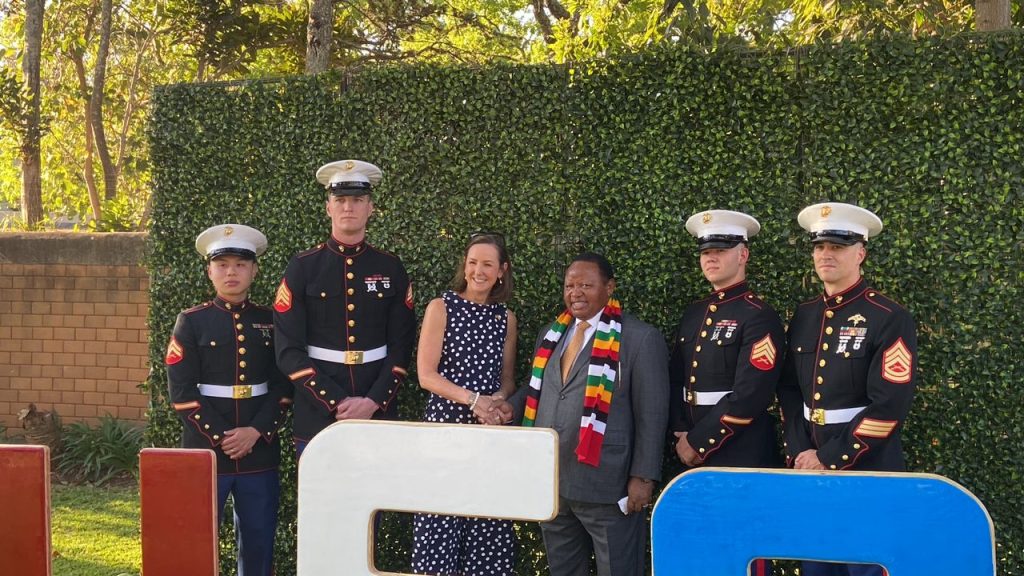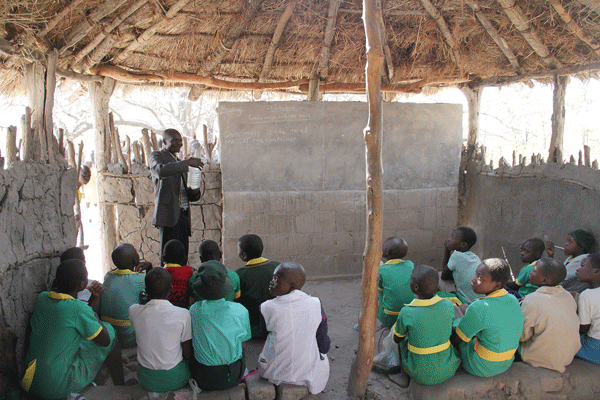By Marshall Bwanya
Harare – The U.S. ambassador to Zimbabwe, Pamela Tremont, has described corruption, human rights abuses, and poor fiscal policies as significant hurdles to American investment in the country.
Speaking during a recent interview on the Breakfast Club hosted by local journalist Zenzele Ndebele, Tremont’s remarks came in the wake of state-sponsored corruption and a crackdown on dissent ahead of last month’s SADC summit.
Over 100 activists were jailed, with only a handful granted bail after the gathering.
Tremont expressed her commitment to improving the investment climate in Zimbabwe.
She noted that while the country often touts itself as “Open for Business,” it’s the underlying conditions that truly matter.
“Well actually one of my top priorities since I have been here partly because the government also expressed interest in, is improving the investment climate in Zimbabwe.
“So that more US companies will be interested in coming to this country.
“We all hear Zimbabwe is open for business but as I always say every country is open for business,” she said.
A 2023 Transparency International Corruption Perception Index (CPI), ranked Zimbabwe number 149 out of 180 surveyed countries, a position that makes the southern African country one of the most corrupt territories in the world.
CPI is a global barometer used to measure perceived levels of public sector corruption among 180 world territories.
Zimbabwe scored 24 points out 100 emerging as one of the worst performers.
In March, Zimbabwe’s Prosecutor General, Justice Loice Matanda-Moyo, revealed that the country was losing over US$1.8 billion annually due to corruption and illicit financial flows.
Moyo said this significant loss of funds has derailed the country’s plans to achieve an upper-middle-income economy by 2030.
Tremont highlighted several areas for improvement, including bolstering anti-corruption measures which she said would attract American investment.
“We need to improve the regulatory certainty, the tax certainty, currency situation, the anti-corruption efforts, strengthening institutions so that there is unbiased rule of law.
“That will make Zimbabwe an attractive destination for American companies.
“When American companies are looking around where they want to put their money, we want them to look at Zimbabwe and find it to be the best possible destination,” she said.
Zimbabwe’s new gold-backed ZiG currency is rapidly losing value as increased grain imports deplete foreign reserves, jeopardizing the government’s plan to make it the sole legal tender by 2026.
ZiG was introduced in April at a rate of US$1:ZWG 13,80 but is now currently trading at US$1:ZWG 23 in parallel market with some traders even demanding much higher premiums depending on demand and supply dynamics.
The Central Bank last week said it injected US$64 million into the Interbank Market in September in a bid to save the ZWG currency from further depreciation on the back of spiralling parallel market exchange rates.
Zimbabwe’s vice president Constantino Chiwenga recently acknowledged the severity of corruption in Zimbabwe, stating that it undermines the rule of law and distorts markets.
“It is important to recognise that corruption represents a serious threat to our nation’s progress, distorting markets, undermining the rule of law and eroding public function as professionals in key positions across both private and public institutions,” said Chiwenga.




